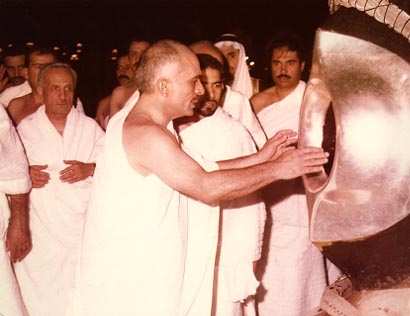| Understanding Islam
As the capstone of a long monotheistic tradition which began with Judaism and Christianity, Muslims believe that Islam completes the revelation of God’s message to man. Islam—which in Arabic means “submission”—is an assertion of the unity, completeness and sovereignty of God. Muslims believe that God, or Allah, as He is known in Arabic, revealed His final message to mankind through the Prophet Muhammad Praise Be Unto Him (PBUH) and the Glorious Qur’an, which is the divine, eternal and immutable word of God. With its focus on the equality of man before the one true God, Islam is in many ways a return to the original doctrine of pure monotheism that characterized the early Judeo-Christian tradition. By the early seventh century, polytheistic religions and idol worship were prevalent throughout the Arabian peninsula. While a few tribes still adhered to their Christian or Jewish traditions, pagan tribes had, over time, become the most powerful in Mecca—the birthplace of Muhammad—and throughout Arabia. The Ka’aba (which in Arabic means cube, describing its shape), built by Ibrahim (Abraham) as the House of God, had lost its traditional purpose and had become a reservoir of idols. Born in 570 CE, Muhammad grew up as an orphan in the house of his uncle Abu Talib. As a young man, he became known and trusted because of his attempts to resolve inter-tribal differences. In fact, he was known within his Quraysh tribe as al-Ameen, or “the trustworthy.” Soon, however, Muhammad began to earn the displeasure of some of his kinsmen. Even before he began to receive religious revelations, Muhammad had always rejected the worship of idols. In 610 CE, though, he had a vision in which the archangel Gabriel commanded him to read a message sent from God saying that man was a creature of God and meant to serve Him. The Prophet received his first divine revelation when he was 40 years old. As Muhammad continued to receive revelations and attract a community of believers, he also attracted the hostility of Mecca’s aristocracy, which reaped profits from the pilgrimages and trade brought by Mecca’s role as a center for idol worship. His uncompromising message of monotheism brought persecution from the ruling class, forcing Muhammad and about 70 of his followers to migrate from Mecca in the year 622 CE. The flight from Mecca al-Mukarrama to al-Medina al-Munawwara—known as the Hijra in Arabic—marks the beginning of the Muslim calendar. In Medina, Muhammad and his followers demonstrated the practicality of the new religion’s social application by resolving bitter rivalries and tensions among the city’s rival groups and clans. Seeing the virtues of Islam in action, many inhabitants of Medina became Muslims. After consolidating the new religion in Medina, Muhammad led his followers back to Mecca, conquering the city in 630 CE. His first act upon returning to Mecca was to cleanse the Ka’aba of its pagan idols, restoring it to the Abrahamic tradition of monotheism. The advent of Islam brought about a social revolution in the Arabian peninsula, as the new religion fought against slavery, the mistreatment of women and other social injustices that had become an accepted way of life. In Mecca, the Islamic umma, or “community,” began to gather strength and soon burst forth upon the world in a spectacular expansion that eventually unified much of the known world under a common religious, social, political, cultural and linguistic tradition. Today there are over 800 million Muslims throughout the world. The diversity found among Muslim communities in language, culture, skin color and ethnic origin is a source of pride for Muslims, who believe in the universal and timeless message of Islam. |
||
